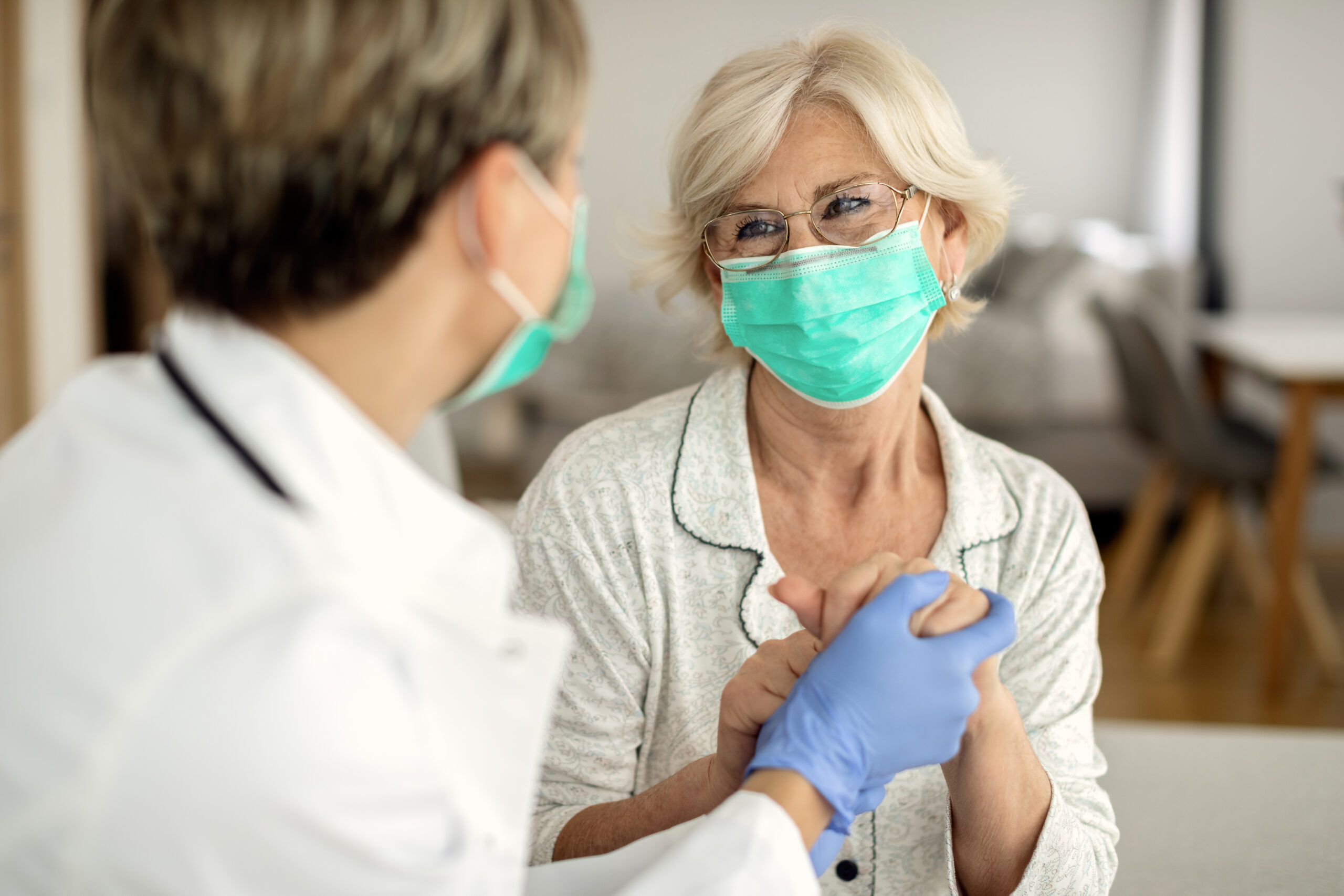Enteroscopy in Utah
What is an enteroscopy procedure?
An enteroscopy is an endoscopic procedure used to diagnose GI issues in the esophagus, stomach, and part of the small intestine (the jejunum) by way of a long, thin scope fed down through the mouth. The scope has a light and a camera on the end of it which allows the physician to see the lining of the esophagus, stomach, and small bowel. An enteroscopy procedure might be suggested to determine the reason for GI symptoms such as abdominal pain, bleeding, or concerning x-ray results. If it’s been suggested you get an enteroscopy, contact one of our talented GI doctors at Utah Gastroenterology to learn more about the procedure. Our providers frequently conduct enteroscopies for Utah patients and can help you improve your GI health.

Why would someone need an enteroscopy?
The providers at Utah Gastroenterology primarily use enteroscopies to spot concerns or disorders in the small intestine. Symptoms of such issues could involve:
- Concerning x-ray results
- Bleeding
- Unexplained diarrhea
- Abnormal growths or tumors in the small bowel
Depending on the reason for ordering the procedure in the first place, there might be alternative options to an enteroscopy. In most patients, enteroscopy is the best way to evaluate and address upper GI tract abnormalities, especially if they involve the second portion of the small intestine (jejunum). However, the x-ray referred to as the upper GI/small bowel follow-through can assess your upper digestive tract, too. This is, however, just a diagnostic tool. Treating abnormalities will require an enteroscopy and/or a surgical procedure.
What is balloon-assisted enteroscopy?
Balloon-assisted enteroscopy (also called push-and-pull enteroscopy) makes use of a separate tube that fits around the endoscope. The scope and overtube are equipped with one balloon (for a single-balloon enteroscopy) or two (for a double-balloon enteroscopy). Once the scope reaches the small intestine, the balloons are inflated and deflated as necessary, allowing the scope to push further through the small intestine for a more comprehensive examination. Both single- and double balloon-assisted enteroscopy allow your Utah Gastroenterology provider to assess the health of the small intestine and deal with minor issues without the need for invasive surgery.
What should I expect the day before my enteroscopy procedure?
Your Utah Gastroenterology GI specialist will supply instructions detailing how to prepare for your upcoming procedure. A large number of patients will likely be allowed to eat like normal the day prior to the exam. Patients will be told not to eat or drink anything after midnight aside from any medications they take. It is very important to adhere to the requirements given to you by your GI specialist. There will also be more instructions about your medications. In most instances, your medications can continue per usual. However, in select cases, especially in patients on anticoagulants and who are diabetic, special rules will be provided.
What happens during my enteroscopy?
You will need to plan to be at the endoscopy unit 1 – 1.5 hours in advance of your enteroscopy procedure. This ensures you’re able to complete paperwork and get prepped for the procedure. We will have you switch into a medical gown. An IV catheter will be started in your arm so that sedation can be given to you. We will connect you to equipment that will allow the providers to monitor your blood pressure, heart rate, pulse, breathing, oxygen levels, and more while you’re in our care.
Once in the exam room, we’ll have you lie on your left side on the procedure table. The IV sedation will then begin. We will give you small amounts at a time to make sure that you do not have any reaction to the medication and to provide only the amount that you need individually. Once an adequate amount of sedation is achieved, the endoscope will be carefully introduced into the mouth. The scope will be carefully advanced through the esophagus, stomach, and small intestine. A small amount of air will be injected through the scope into your GI tract to help your physician see. Any fluid remaining in the upper gastrointestinal tract is removed through the scope. Based on the results of the exam, a number of procedures or treatments can be suggested at the time of your enteroscopy, like biopsies, removal of polyps, and control of bleeding. At the end of the procedure, air and remaining fluid are suctioned out via the scope. Depending on the findings, the exam often takes somewhere between 15 – 45 minutes. Balloon enteroscopy may take longer, as it provides a more comprehensive examination of the bowel.
Once the exam is done, you will be escorted to a separate recovery room to be monitored while the sedation wears off. The amount of IV sedation given during your exam and your individual reaction to the medication will determine how fast you come to, though most patients are alert enough to be released after about 45 – 60 minutes. You will not be allowed to drive for the remainder of the day, so you will need to arrange for a ride home. You will not be able to work, sign official papers, or do arduous activities for the rest of the day. Typically, patients are capable of eating and drinking normally after their discharge from the endoscopy facility, however, specific instructions regarding activity, eating, and medications will be reviewed before you are discharged.
After the enteroscopy, your Utah Gastroenterology team will go over the findings of the procedure with you. Many individuals will struggle to remember what they are told after the exam because of the effects of the medication. We recommend, if possible, that you bring someone with you who can lend a second pair of ears. You will also go home with a report. You will be informed of any biopsy results usually within one week.
Are there risks with an enteroscopy?
An enteroscopy is, by and large, a safe and effective diagnostic method. The same is true for balloon-assisted enteroscopy. Normally, challenges arise in fewer than 1% of patients. Most issues are not terminal, however, if a complication does occur, it may require a hospital stay and/or surgery. Ahead of your exam, we will review a consent form with you. Should any questions or concerns arise, these can be reviewed with your provider before your enteroscopy.
There is a possibility of an adverse reaction to the sedation used for the procedure. These can include, but are not limited to, difficulty breathing, effects on your heart and blood pressure, allergic reactions, and irritation of the vein that received the medication. Bleeding may result after biopsies, removal of polyps, or if any narrowing had to be addressed. Again, bleeding to an extent that would require a blood transfusion or hospitalization is very uncommon. A hole or puncture of the esophagus, stomach, or small intestine could occur. This may be recognized at the time of the exam, or it might not be apparent until hours later. In the majority of cases, this will mean surgery and/or a hospital stay. This is an uncommon complication, even when biopsies are taken or dilation is performed. It is imperative that the patient contact our Utah office right away if symptoms occur after your procedure which may include worsening abdominal pain, bleeding, or fever.
As is the case with any other test, enteroscopy is not without imperfections. There is a minimal, accepted risk that irregularities, including cancers, may be undiagnosed throughout the course of the procedure. It is important to continue to follow up with your physician as advised and let them know of any new or persistent issues.
Enteroscopy FAQs
What are the restrictions following an enteroscopy?
Post-enteroscopy, it is crucial to avoid eating or drinking until your doctor gives the go-ahead. Adhering to any prescribed medication plans is also essential. Engaging in vigorous activities should be avoided, and immediate contact with our office is advised if you encounter severe stomach pain, ongoing bleeding, or fever.
Who may be advised against undergoing an enteroscopy?
The data from an anorectal manometry provide critical insights into the muscle pressures and coordination within the rectal and anal regions. These findings are key for diagnosing various conditions affecting bowel control. Your provider or a member of their team will review these results with you to help diagnose any issues or determine the appropriate treatment plans.
What are the recommended actions following an anorectal manometry procedure?
Typically, you are able to return to your usual activities immediately after an anorectal manometry without any specific post-procedure limitations. However, should you encounter any atypical symptoms post-test, such as significant rectal bleeding or intense pain, it’s imperative to contact your provider right away for guidance and potential intervention.
